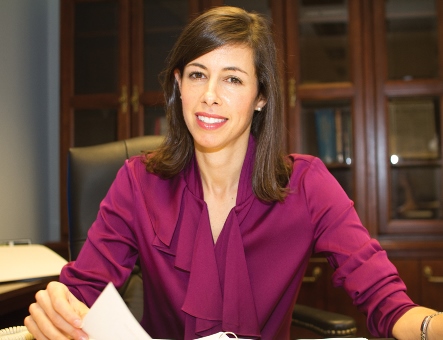'Homework Gap' Needs Broadband Fill, Rosenworcel Says
The smarter way to stay on top of the multichannel video marketplace. Sign up below.
You are now subscribed
Your newsletter sign-up was successful

Washington, D.C. -- Assuring students access to broadband service outside school and their homes is essential, and added funding for high-speed access in libraries is a significant way to accomplish that goal, FCC commissioner Jessica Rosenworcel said in her speech on "The Broadband Imperative and the Homework Gap" on Thursday.
Addressing the State Education Technology Directors Association, she complimented the group for its second "Broadband Imperative Report," just released, which focuses on "digital equity."
"This is an issue that demands attention -- I believe your work here is a clarion call," Rosenworcel said. She characterized the organization's first Broadband Imperative report in 2012 as an incentive for the FCC to update its E-rate program which helps connect schools and libraries to broadband.
But she pointed out that today "seven in 10 teachers assign homework that requires Internet access," putting it in the context of FCC data showing that "one in three household does not have broadband service." Rosenworcel called the sector that is not reached as a "homework gap" where students cannot fully complete school assignments.
Her remarks never mention the role of cable TV operators in developing broadband services for audiences who can use such facilities to close the homework gap.
She cited examples of students' creative efforts to access broadband -- from sitting in fast food restaurants or the parking lots near schools or the steps outside public libraries to use wireless broadband after school hours.
"These kids are resilient. They are cobbling together whatever connectivity they can find to do their schoolwork," Rosenworcel said. "Their grit is impressive. But it shouldn’t be this hard."
The smarter way to stay on top of the multichannel video marketplace. Sign up below.
She cited the Library Service and Technology Act as "the only federal program exclusively for libraries." Although funds from this federal program support a range of projects for libraries and learning, Rosenworcel suggested that "this kind of connectivity ... effort deserves support." She was particularly enthusiastic about such opportunities to "bridge the homework gap and close the cruelest part of the digital divide."
Moreover, she said, she envisioned that universal broadband access will be able to turn all students "into not just digital consumers but digital creators."
Contributor Gary Arlen is known for his insights into the convergence of media, telecom, content and technology. Gary was founder/editor/publisher of Interactivity Report, TeleServices Report and other influential newsletters; he was the longtime “curmudgeon” columnist for Multichannel News as well as a regular contributor to AdMap, Washington Technology and Telecommunications Reports. He writes regularly about trends and media/marketing for the Consumer Technology Association's i3 magazine plus several blogs. Gary has taught media-focused courses on the adjunct faculties at George Mason University and American University and has guest-lectured at MIT, Harvard, UCLA, University of Southern California and Northwestern University and at countless media, marketing and technology industry events. As President of Arlen Communications LLC, he has provided analyses about the development of applications and services for entertainment, marketing and e-commerce.

